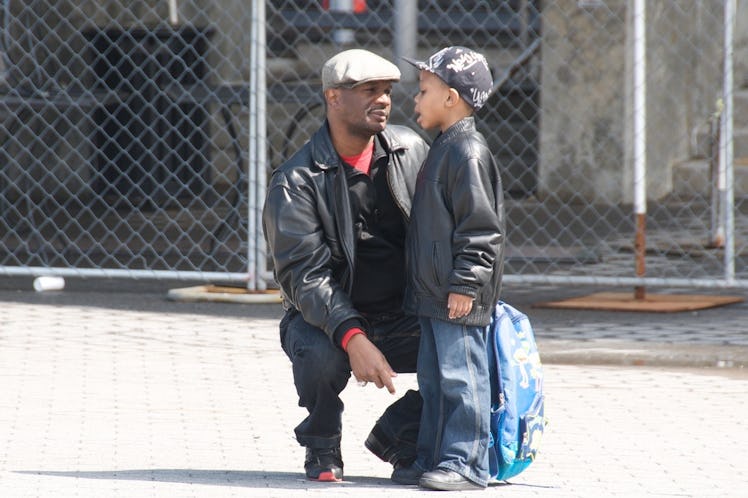9 Essential Lessons About Life I Learned From My Father
No 8. Perception is the better part of reality.

On my 45th birthday — 20-some years ago now, before there was FaceTime or Skype — my father called from New Delhi. He was 80 then, when 80 was much closer to 100 than my own age. My dad was not a fan of the phone, so these calls were rare and I hated to end them.
“You do realize there have been 10,000 miles between us for half of your lifetime now?” My dad was beginning his closing statement. “Yet, we’ve managed to share our… learning.” He paused. “You don’t think that will stop when I’m gone?” I didn’t want to imagine the answer. “No. Now go, go have a happy birthday, Deepasie!”
I talked to my dad less than 24 hours after his birthday call. And that’s when I recognized he’d imparted another one of his lessons. For half my lifetime, I’d been conversing with my dad in my head. The next time we actually talked on the phone, I confirmed that he’d been doing the same, ten thousand miles away.
N.T. Mathew, my dad, lived to be 92. He was born in 1915, and he became one of India’s great statisticians. He might have been an unlikely life coach, however, I find myself repeatedly sharing lessons from his life, with my sons, their partners, colleagues, friends, and the random stranger.
1. Do not dismiss the outliers. He had his own “rubber band theory” — we were to inhabit the outlier’s point of view. We did not have to agree, but when we returned to our own center, he believed, our minds, like rubber bands, would have been permanently stretched.
2. Be curious. With my dad, it was never, “How was your day?” It was “What have you learned today?” Or “What can you learn today?” The norms never held his attention. The variation, the unpredictable endlessly fascinated him.
3. No one is one degree superior to you. No one is one degree inferior to you. At the height of his career, Dr. N. T. Mathew was a top advisor to India’s first Prime Minister Nehru with broad (and detailed) oversight army and government operations. He was assigned a personal assistant who, among other duties, was to carry my dad’s briefcase. Uncomfortable with the inequity of this daily routine, my dad walked many miles over the years, side by side with this man, carrying his own briefcase, but asking questions about the man’s life. He deeply believed there was something to be learned from everyone. Gajan Singh and my father became equals in their love of family and a desire to provide the best opportunity for each member of their families.
4. Just listen. As an adult, I still cannot fathom the myriad background operations that were whirring in my dad’s brain when we were kids. But, when you sat with him, the world virtually stopped spinning. Even when we could not come to an understanding, he would thoughtfully comment, “You have given me something to think about,” as if it were a gift.
5. Be genuine. My dad used to complain he was “allergic” to arrogance. He was impatient with pretense of any sort and not given to much sentimentality. His encouragement fueled the missions of thousands of Jawans’ (Indian soldiers), and his three children’s dreams.
6. If you come upon an elephant, walk around it. For years, I attributed that Indian proverb to my dad. Literally blind in one eye, he had somehow memorized the eye chart with his seeing eye and passed his military physical. He simply would not accept the phrase, “It cannot be done.” With hard work, a little ingenuity, and perseverance, anything could be done.
7. Read. He was not particularly interested in our favorites; my dad was confident our passions would take care of themselves. He exposed us to all the “great” books, from Plato’s Republic to Russian Fairy Tales. Macular degeneration in his good eye cut him off from the library he had amassed for his retirement. Reading out loud to him in his last years remains one of my greatest pleasures.
8. Perception is the better part of reality. By better, he meant larger. We perceive or observe our reality, and then we make sense of it. This way of thinking my dad often pointed out, gives us more responsibility for our own reality. The name he gave me, Deepa, meaning light, was an unapologetic attempt to influence my reality.
9. Leave some things to the stars. For or perhaps because of all his mathematical quests and conquests, my dad always accepted that not everything was quantifiable. The more we know, the more there is to know. His father was a self-proclaimed astronomer and astrologer. My father’s Ph.D. proved a positive correlation between a person’s lifeline and their lifespan. My boys loved having their palms read.
I am stopping at nine, a mystical number in Hinduism. I have a reverence for numbers, especially when they paint a picture. The expertise that Ford Motor Company sought in my dad back in the 1960s has now been replaced by computer generated algorithms. Seemingly rote recursions. But my dad’s life’s work was assigning meaning to these calculations, from the infinitesimal deviations to the grandest outliers. And while I did not inherit his math brain, as he gently suggested on birthday 45, I will never stop sharing his wisdom.
This article was syndicated from Medium. Deepa Thomas’s book Deepa’s Secrets, “is a visual cookbook of flavorful and healing recipes — interlaced with vivid stories of her Indian upbringing and its influence on her American life.” Ms. Thomas will donate all royalties of Deepa’s Secrets to FoodCorps, a nonprofit that connects children to healthy food in American schools.
This article was originally published on